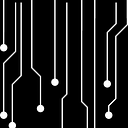Bitcoin is Qaput ? What are the options
Two weeks ago we discussed the quantum threat, but the itch wasn’t all scratched away.
There’s no way around it, ECDSA will be obsolete in a few years. And while it doesn’t threaten every aspect of Bitcoin, it might be enough to break the hard earned trust of the market.
And “a few years” might actually be “a year or two” if the information publicly available about quantum computers is far from what governments actually know — which is highly probable.
I can’t see how quantum decrypting capacity wouldn’t be a top priority for any big government. These are unfounded speculations but what’s 100% sure is that we’re pretty far from knowing about the top secret projects of the surveillance agencies of this world.
As a hint, this Mckinsey report talks about the $1.2 Billion investment in the field in 2021 and about China’s $15 Billion quantum budget for 2022–25.
The problem with a big Q
As a reminder, NIST announced that ECDSA — the algorithm that generates the pair of keys that make up your wallet — isn’t quantum proof.
Nowadays, the public ECDSA key is hidden behind a SHA256 encryption, which is safe even in a post-quantum era.
Nonetheless, the address is only safe as long as it doesn’t make a transaction. To send a transaction, one need to sign the message to prove that the transaction is from the rightful owner of the private key. Fatally, if the public ECDSA becomes public, in a future where Qomputers are strong enough, the private key could potentially be derived and used to steal tokens. To be “strong enough” they would need the ability to crack it in under 10 minutes, before the transaction being added to a new block.
In this case, your wallet is only safe while it’s unused and everybody has to learn to use single transaction wallets. Meaning, every time you make a transaction, you send the whole value of the wallet. One part to make the payment and the rest to an unused wallet.
Lots of us are still getting phished by clicking random links in their emails in 2022… I’m not sure we could manage to organise the mass adoption of this kind of Bitcoin good practices.
Assuming we could, what would happen to all the wallets that already made some transactions ? And those before SHA256 encryption was added to the addresses ? A single BTC moving from a sleeping giant wallet in a post-quantum era could give rise to a panic sell.
The solution with a big F
What if the Fork is unavoidable ?
Maybe there’s no way but to fork the Bitcoin blockchain into a quantum-resistant version of itself. Among all the papers that claim that RSA is dead in a post quantum era, one study defends RSA by stating that tweaking enough parameters can make RSA encryption safe, but at a relatively huge cost.
Is a Fork fair ?
Can we vote on a fork and leave those who didn’t check the news for a while locked out of the new BTCQ era ?
Can we propose a new BTCQ and a year-long window to make the changes before swapping into a “safe”space again ?
Around 4 million coins are subject to being stolen, assuming nothing changes. If touched, this amount of lost tokens would break the market. And who’s willing to invest, knowing full well that a cataclysmic black swan event is on the horizon.
What if you create a BTCQ fork with a 1:1 corresponding BTCQ address to every BTC address. Send to every BTC account a self-destuctive BTCQ private key to its “mirror address”. Every inactive account stays inactive, and after a year long window and a lot of communication around the process, the BTCQ fork would become the new version of the BTC market, as is.
Such a fork would require an enormous amount of collaboration, and such adaptability would only increase the strength of the Bitcoin community.
Happy thoughts
Quantum computers aren’t fatal for cryptography, but the algorithms must be adapted. While the threat might still seem far away, it’s unlikely that BTC will survive as is. Knowing that, those with the most value at stake should propose something in the months or years to come.
Nonetheless, hash-based and lattice-based — among others — are and will be safe in a post quantum era. Same goes for the new Sphinx, Dilithium and other NIST approved post-quantum algorithms.
Also, most wizards active in Bitcointalk aren’t that concerned by the quantum threat. Some even propose to burn old coin to get rid of the “4 million coins ” issue. After that, SHA256 will be enough to manage the rest.
Most importantly, Qomputers aren’t only threats to crypto. They also represent an estimated $700 Billion industry as soon as 2035. Here’s a Forbes list of other amazing things they could do. Let’s just wait and see !
And as always, time will tell.

